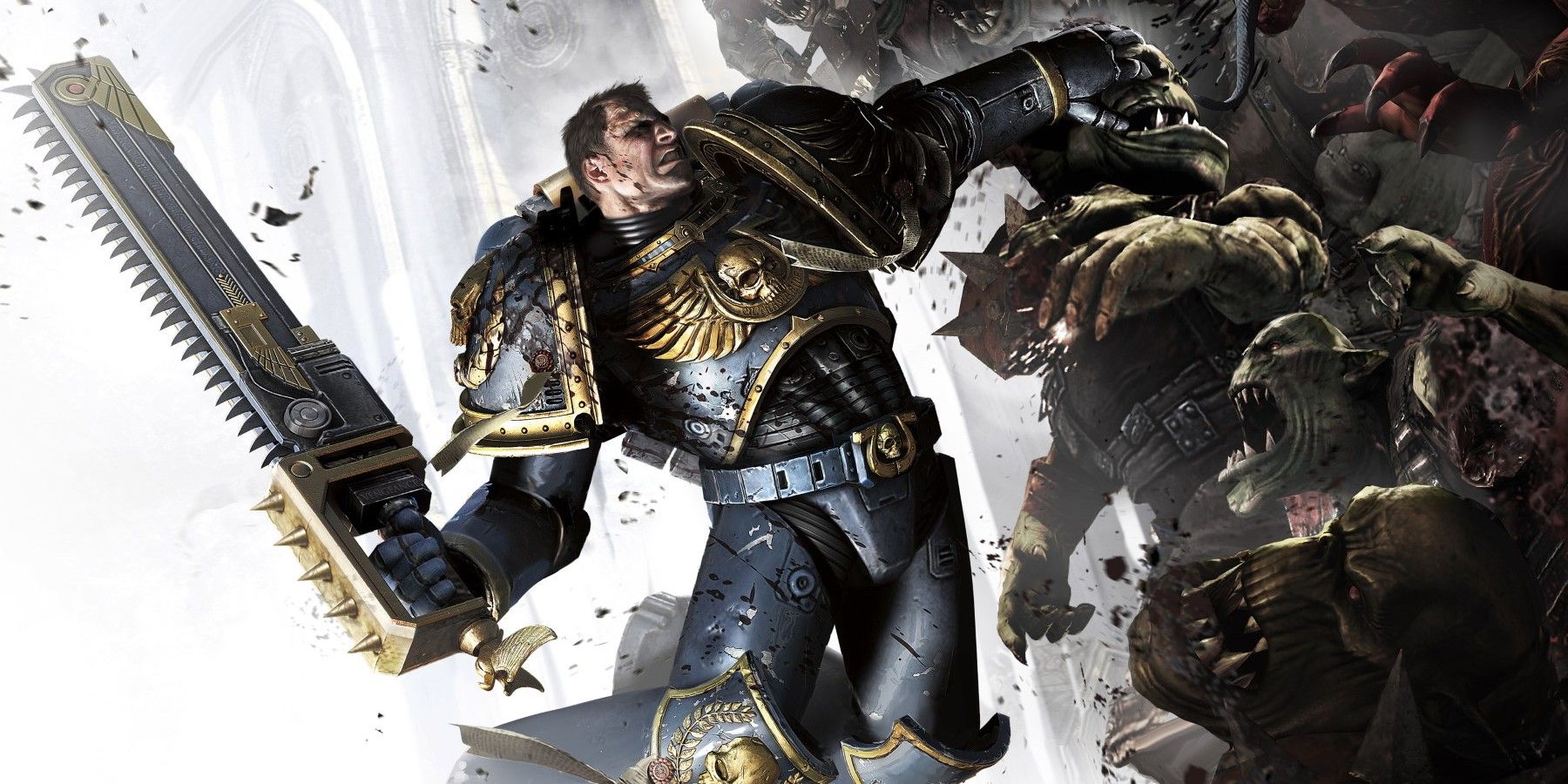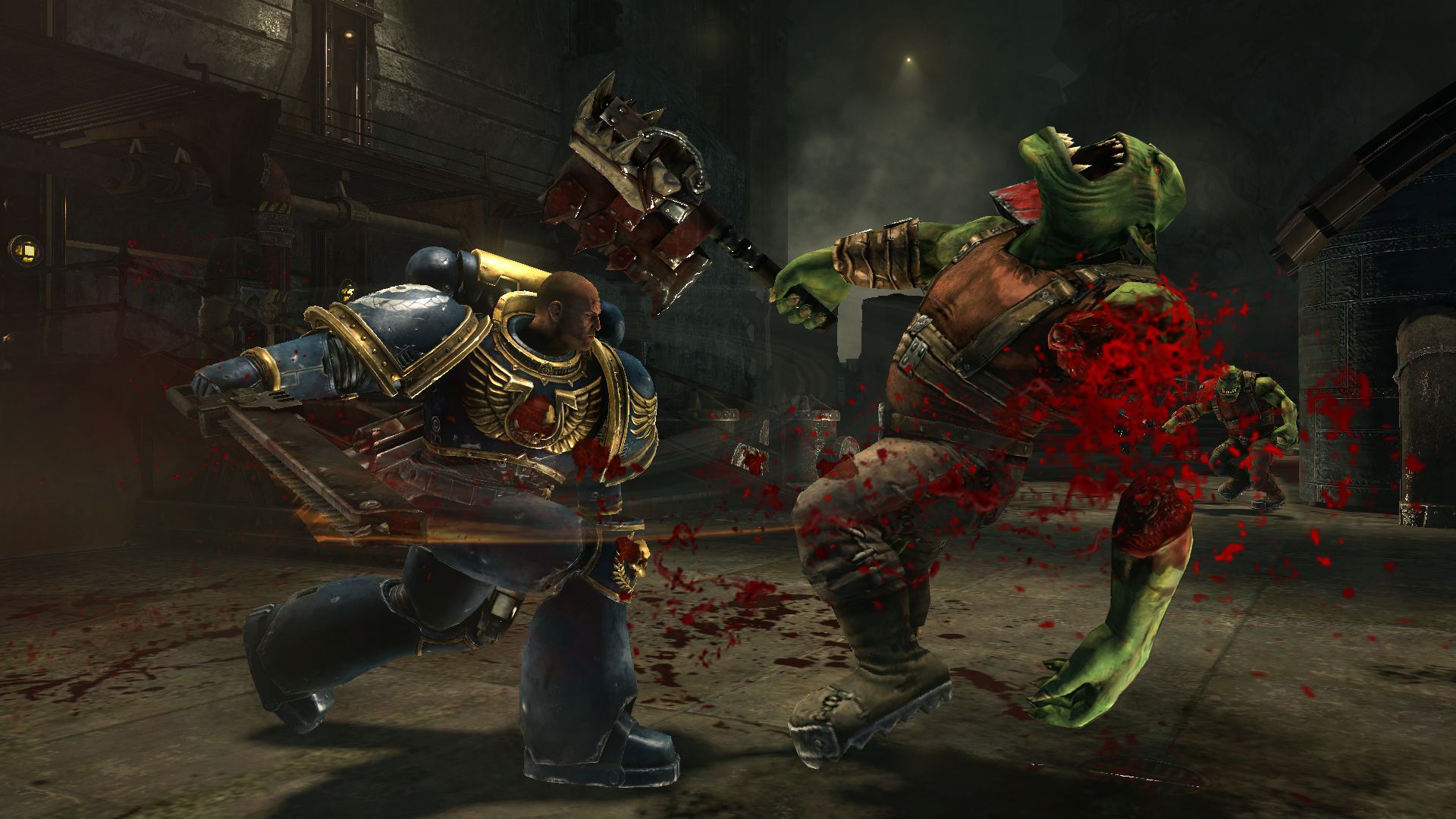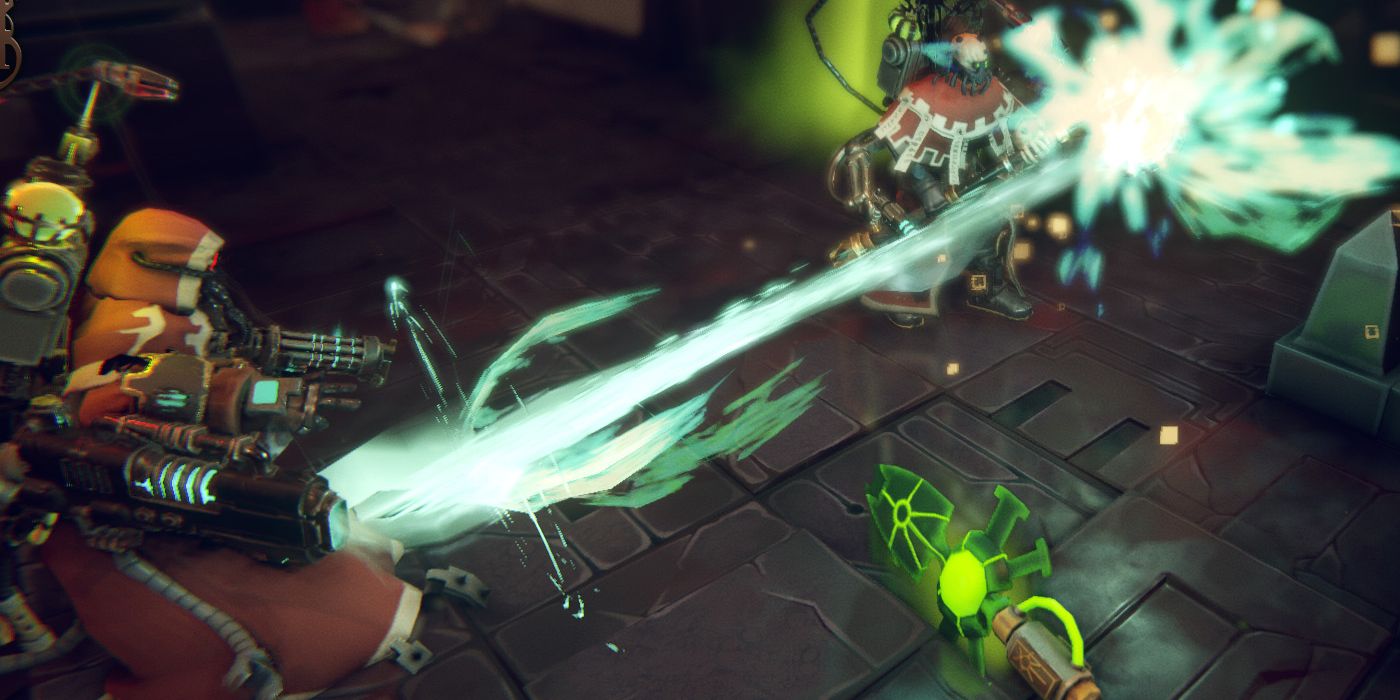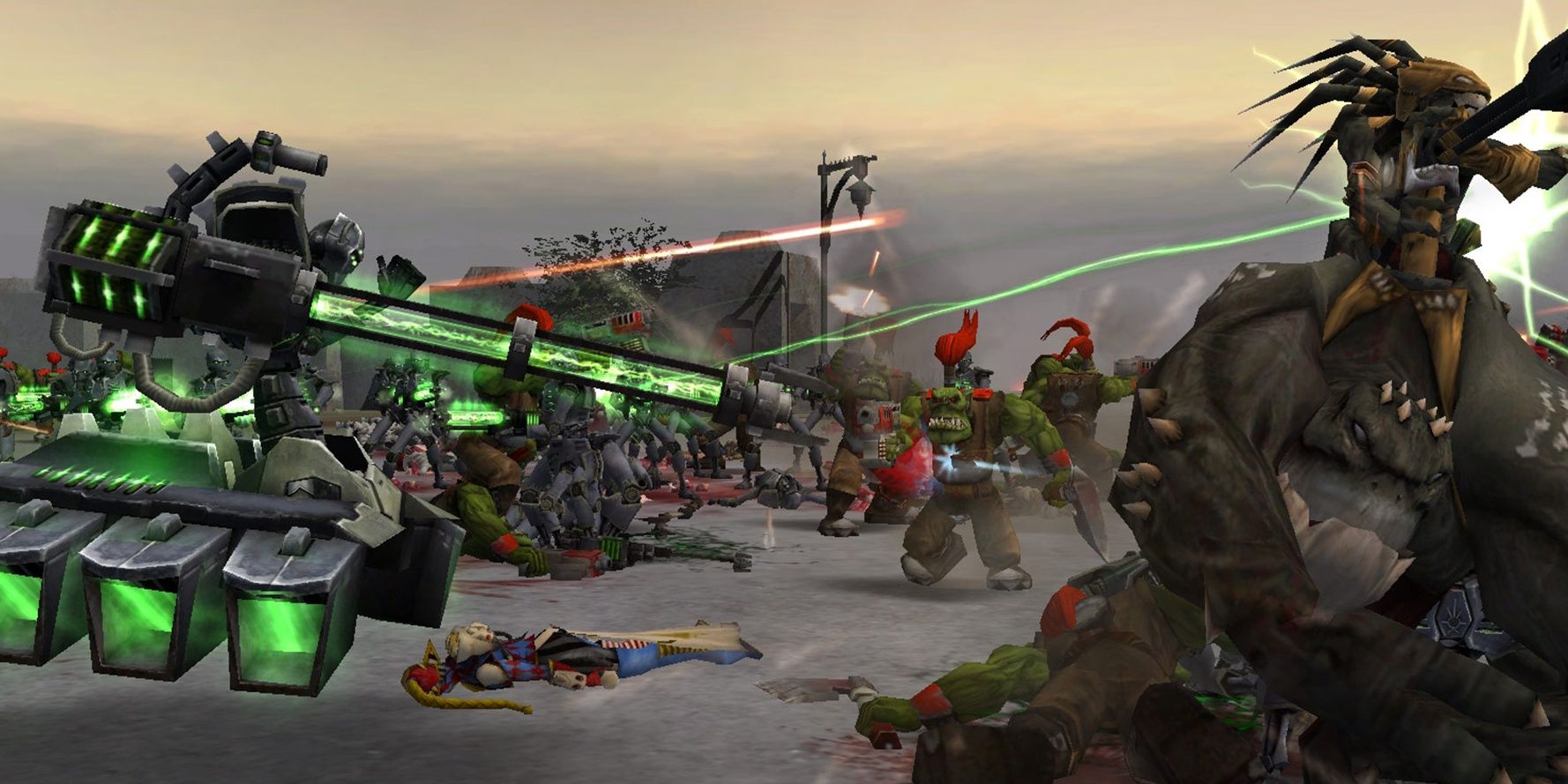As any fan of the franchise will likely say, Warhammer 40,000 is an incredible hobby to get into. There's Orks, super soldier Space Marines, Chaos Daemons, everything's grim and also dark, it's wonderful. Even those brand new to the Warhammer tabletop hobby will remark how deep and rich the world-building is, with over thirty years of source material being interwoven to create the current 40K universe.
That's exactly why Warhammer 40K is so intimidating for newcomers. 30 years of extensive history, lore, and rules doesn't make for an overly accessible hobby. That's where the 40K video games come in. Starting in 1992, and often releasing multiple games every year since, there is no shortage of Warhammer games, but choosing the right ones to ease players into the universe can be a tricky task.
Warhammer 40,000: Space Marine
Starting with, probably, the most accessible 40K game there is: Space Marine follows the blood-soaked adventures of Captain Titus, leader of a squad of genetically modified super soldiers known as Space Marines, who are tasked with single-handedly removing an invasion force of Orks on a Forge World. The game blends third-person shooting seamlessly with hack-and-slash combat, leading to combat that is as intense as it is satisfying.
The game's narrative perfectly eases players into the universe of 40K by giving them just a handful of named characters, clearly explaining their role in the universe, and introducing only a few of 40K's wilder concepts. For instance, the game's first half focuses solely on the Ork-Imperium conflict on the planet; it takes a good few hours before any other factions are shown.
By narrowing the game's narrative down to just one squad of Ultramarines, newcomers to the series are given a clear idea of what their actions are doing and why they're important in-universe. The little tidbits of lore and fan-service might go over a player's head initially, but they'll be able to take the knowledge gained from playing through Space Marine and apply it to the rest of the 40K universe, now having a general understanding of the Imperium of Man, the Orks, and Chaos.
The gameplay itself is also very accessible, giving players of all skill levels an opportunity to ease themselves into the 40K universe. Enemies are shredded through fairly easily, button bindings are obvious and easy to remember, and the objectives themselves are pretty simple, often boiling down to "hold the position" or "go there, kill that." Space Marine is a truly accessible game, from both a gameplay and narrative perspective, and is a great place to start for any gamers who want to dip their toes into 40K's bloody waters.
Warhammer 40,000: Mechanicus
If Space Marine's third-person hack-and-slashing isn't taking a player's fancy, then they may want to try out Mechanicus. The gameplay of Mechanicus can be summarised in just two (technically three) words: "It's XCOM." Mechanicus takes heavy inspiration from the most popular turn-based tactics game around, delivering a strategy game that can actually give the player some real challenges if they're not totally tuned in to the gameplay intricacies.
Mechanicus' difficulty might make it harder to recommend to new gamers or those who aren't used to the tactics genre, but it does ease newcomers into the 40K universe very well with its narrative. Mechanicus' general plot is very straightforward; players take control of a squad of Tech Priests, some of the most technologically advanced beings in the 40K universe. These Tech Priests are the primary force of the Adeptus Mechanicus, the scientific branch of the Imperium (with the Adeptus Astartes Space Marines being the military branch).
The narrative sees the player's Tech Priests enter a Necron (another faction) tomb, where they awaken the dormant undead cyborgs. And that's really all a player needs to know going in. While there are some pretty out-there names and some lore deep-cuts in Mechanicus, players don't need to know any of it to have a good time with the game.
Warhammer 40,000: Dawn of War
Widely considered to be the best Warhammer 40K game available, Dawn of War is a real-time strategy game that brings all the classic RTS gameplay tropes to the 40K universe. In the base game, players can control one of four factions, ranging from the Orks to Space Marines, Chaos Marines, and Eldar (40K's space elves). Each faction has their own intricate tech-tree and specialized units, helping to increase the replayability of the game.
Dawn of War is still considered by many to be the best 40K game available for a number of both gameplay and narrative reasons. On the gameplay front, Dawn of War is an excellent RTS, with balanced factions, rewarding progression, and a natural learning curve that teaches the player the various complexities of the gameplay at a steady pace.
From a narrative standpoint, Dawn of War does an excellent job at introducing the key factions of the 40K universe gradually, easing the player into understanding the ins and outs of the universe's politics. For instance, the game starts with a simple premise, the player being tasked with using their squad of Blood Raven Space Marines to clear out a base of Orks. Soon, the player is leading charges against the Eldar and facing off against swarms of Chaos Marines, but it's all done with meticulous care to ensure that the player doesn't get lost.
Regardless of where a player starts, getting into Warhammer 40K is a surprisingly rewarding experience. While it may seem intimidating at first, the wealth of lore and source material available to a newcomer can be very exciting. And with new 40K games releasing next year like Space Marine II and Darktide, there has never been a better time to charge head-first into the franchise.




